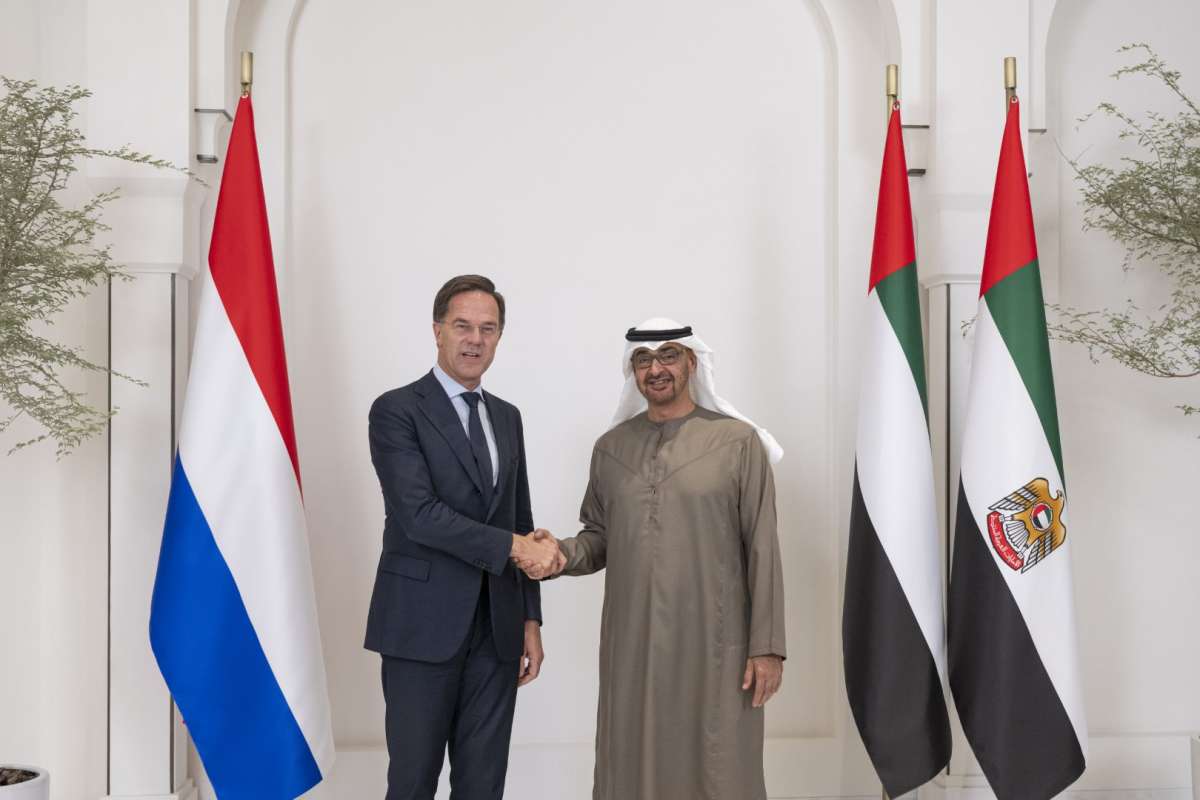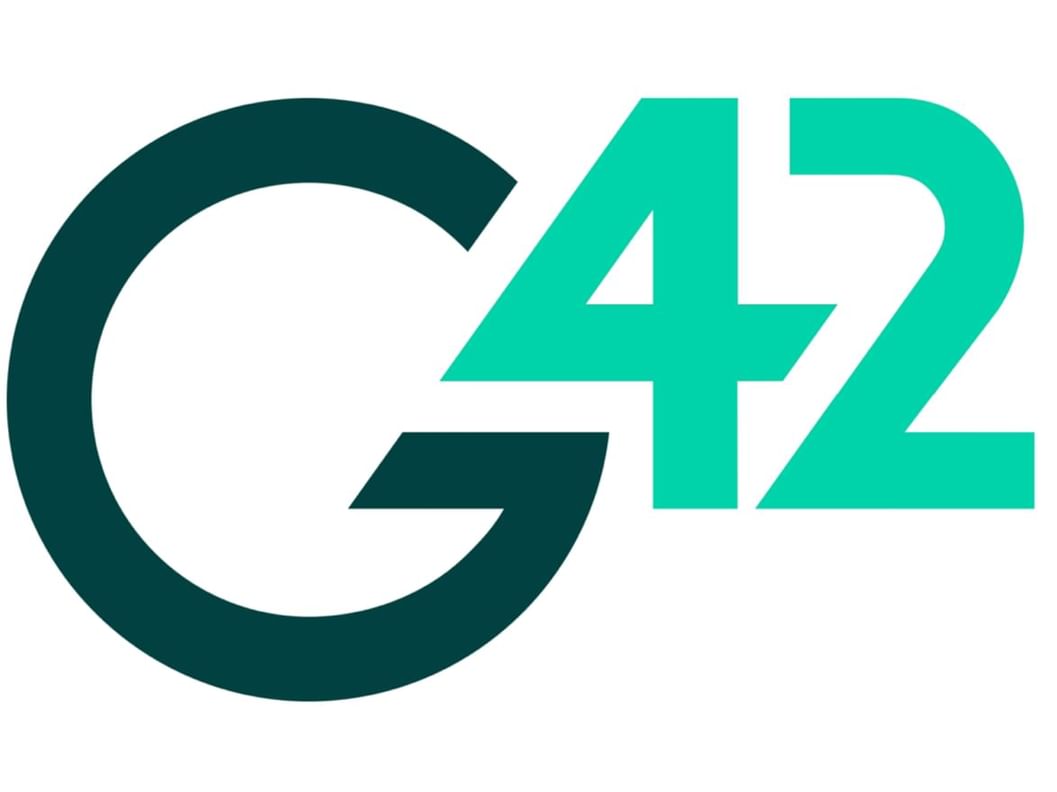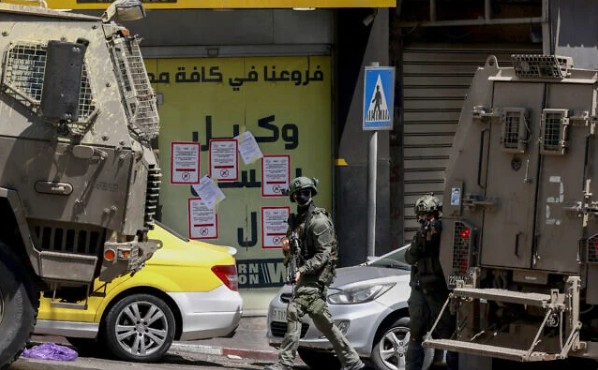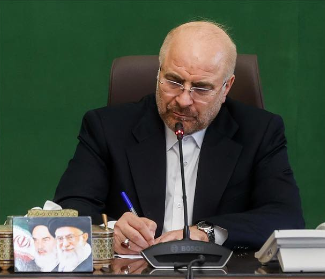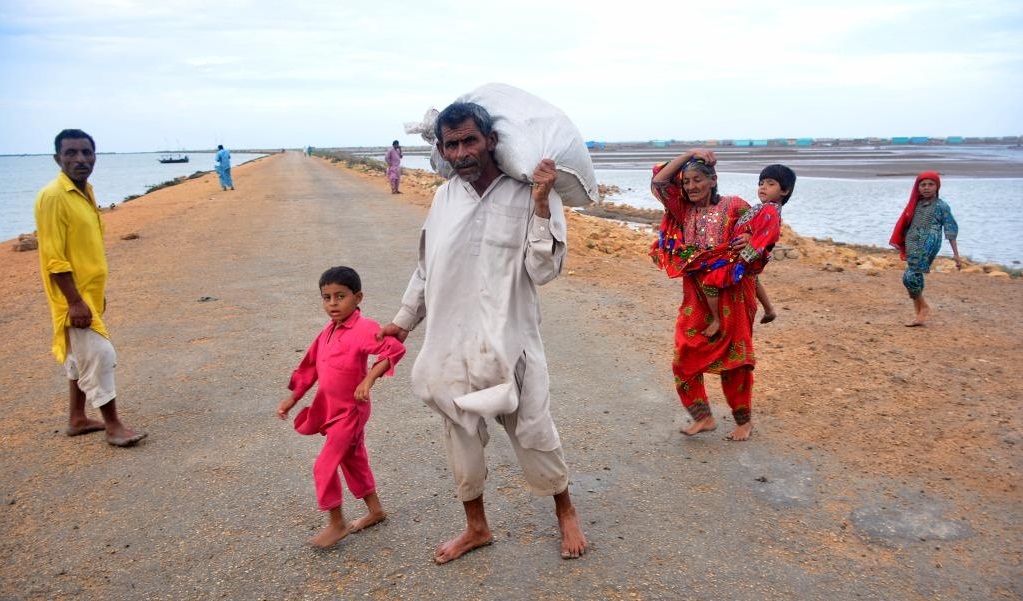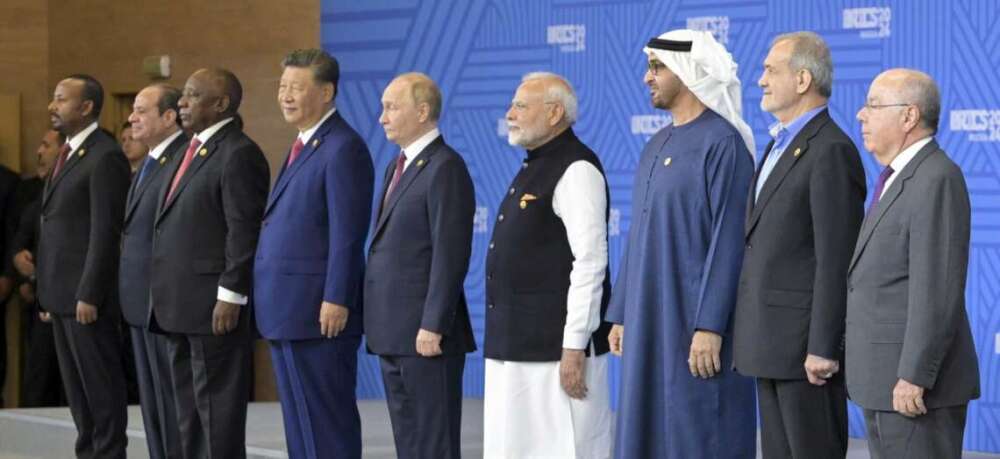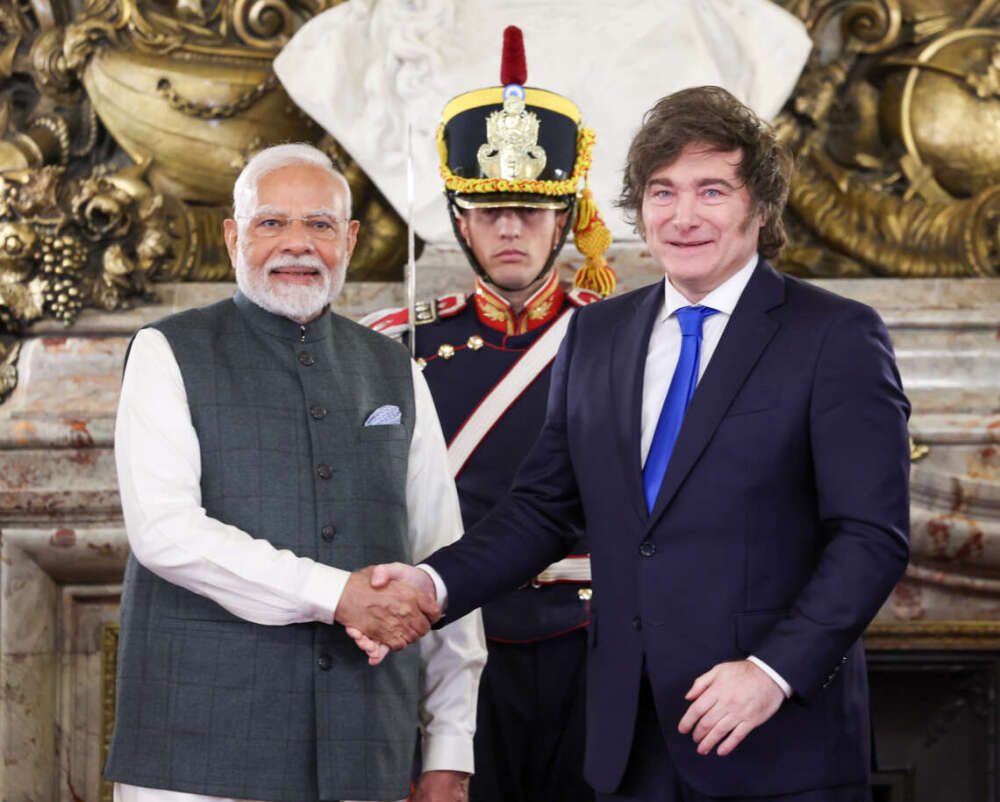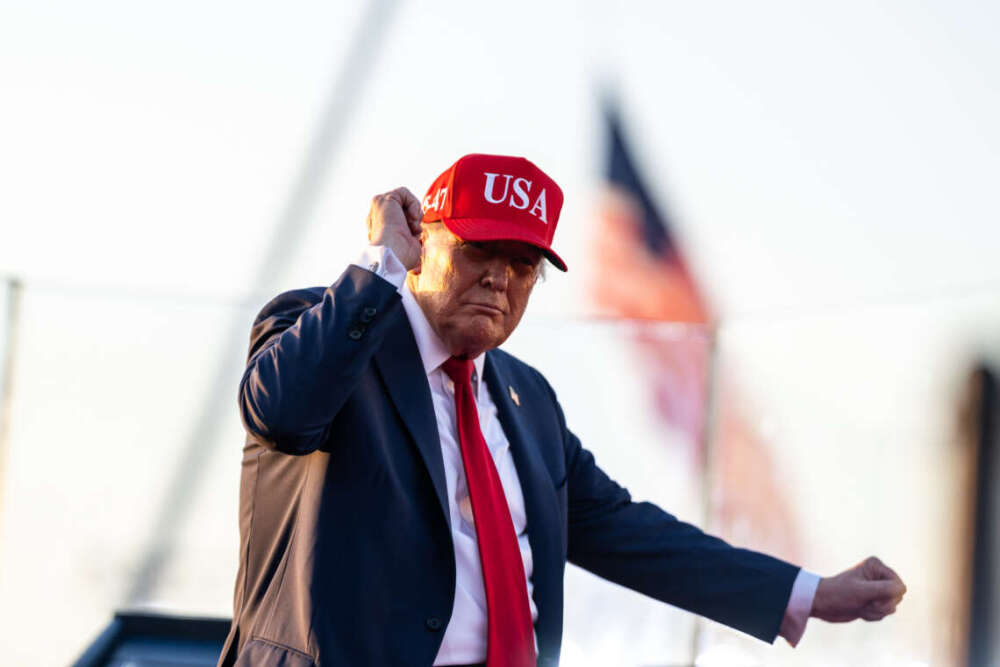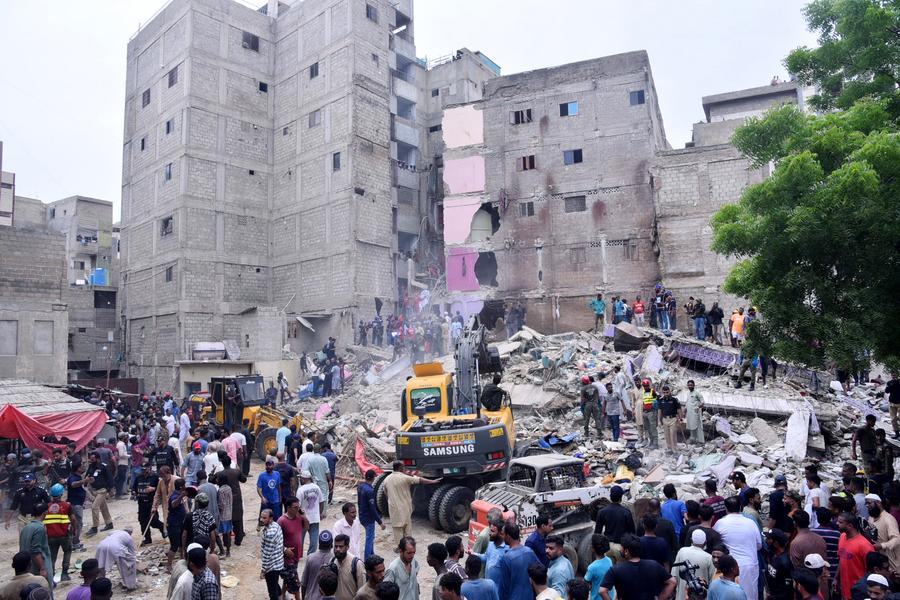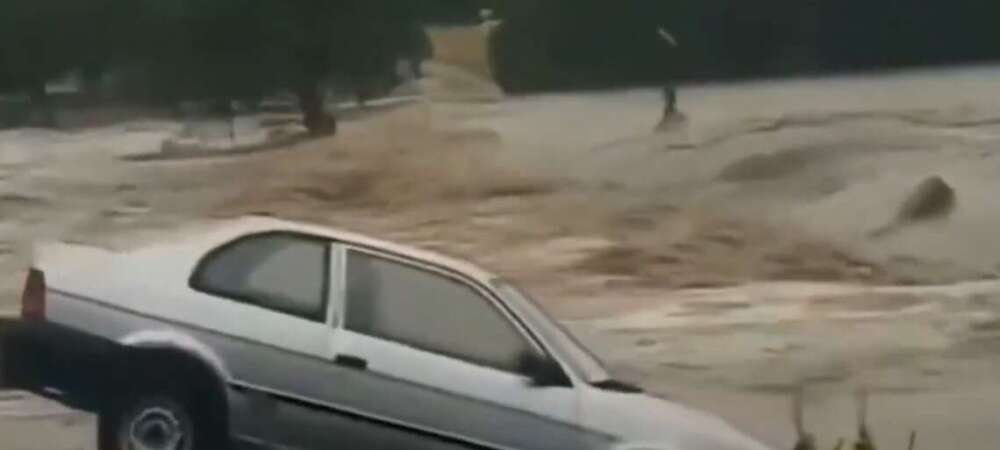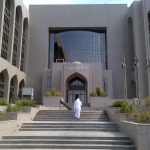During the meeting, the two sides reviewed bilateral cooperation in the investment, economic, educational, cultural, technology, and science fields….reports Asian Lite News
UAE President His Highness Sheikh Mohamed bin Zayed Al Nahyan and Netherland Prime Minister Mark Rutte discussed the strength of bilateral relations and strategic cooperation between the two countries and opportunities to develop ties to serve mutual interests, in addition to various regional and international developments.
This came during His Highness’ reception of the Dutch Prime Minister at Qasr Al Shati in Abu Dhabi, where His Highness welcomed Rutte and expressed his hope that the visit would contribute to advancing UAE-Netherlands relations in key fields.
During the meeting, the two sides reviewed bilateral cooperation in the investment, economic, educational, cultural, technology, and science fields.
They also discussed renewable energy, sustainable development and climate action.
Later, Dr Thani bin Ahmed Al Zeyoudi, Minister of State for Foreign Trade, and PM Rutte have agreed to deepen collaboration on industries of the future during a CEO roundtable in Dubai held under the theme “Energizing the Future”.
They both expressed the desire to catalyze investment flows and joint ventures in priority sectors such as renewable energy, space industry, artificial intelligence, entrepreneurship, agri-tech and smart mobility solutions, and concluded the meeting by witnesses the signing of an agreement to cooperate on water management.
Mark Rutte was leading a Dutch delegation to the United Arab Emirates to seek stronger trade and investment ties between the two nations, including the establishment of a sustainable economic corridor that can leverage the opportunities created by Net Zero and the drive for decarbonized value chains. This includes the potential for the transportation of green hydrogen between the two nations.
The UAE and The Netherlands have been expanding bilateral relations in recent years, with The Netherlands among the UAE’s top-five trading partners in the EU. In the first half of 2023, bilateral non-oil trade reached AED11.2 billion, representing a 20.4 percent increase on the same period in 2022.
Al Zeyoudi said that the roundtable, which also featured Gerard Paul Marie Hubert Steigs, Ambassador of The Kingdom of the Netherlands to the UAE, helped underline a commitment to working together to develop pioneering solutions to the world’s most pressing issues. “The Kingdom of the Netherlands is a long-standing ally in our journey to develop an agile economy that is built on knowledge and innovation. Our private sectors have already forged important joint-ventures in sectors such as agri-tech and energy transition, and we believe that there are many more high-value opportunities to explore on the path to Net Zero. We both share a vision of long-term, sustainable growth based on technology and talent, and believe our meeting today will spark a new wave of cooperation on multiple fronts.”
Prime Minister Mark Rutte agreed that both sides have many synergies on the issue of sustainability. “The United Arab Emirates and the Netherlands have a lot in common. We are both trading nations with a big global impact, so it’s only logical that our relationship has a strong focus on trade and investment. But we also both have major ambitions for green hydrogen and that’s why we are strengthening ties to create a green hydrogen corridor of the future.”
The minister also invited Dutch entities to take advantage of the many incentives offered within the UAE’s dynamic business ecosystem, which include full foreign ownership, flexible tax policies, and fast-track business setup and licensing. He also highlighted the nation’s global connectivity, which is supported by world-class infrastructure and a new generation of trade deals under the Comprehensive Economic Partnership Agreement program. UAE-based exporters now have seamless access to the markets of India, Israel, Indonesia, Türkiye and Cambodia, which represent almost a quarter of the world’s population.


